Oceans
Science News for Students articles on oceans
-
 Animals
AnimalsLet’s learn about sharks
This ancient group of fish can use scent and even electricity to detect their prey. And they fill an important niche in the ocean.
-
 Oceans
OceansAnalyze This: Shipwrecks provide a home for bottom-dwelling fish
Fish have found a habitat in a submarine and freighter that sunk to the seafloor during World War II.
-
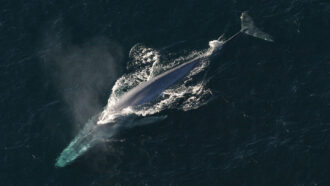 Animals
AnimalsWhales get a second life as deep-sea buffets
When a whale dies and sinks to the seafloor, it becomes a feast for hundreds of different types of creatures.
-
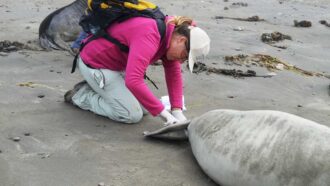 Animals
AnimalsOne tiny sea parasite survives 200 times atmospheric pressure
Known as the seal louse, this tiny insect can survive deep oceanic dives on its mobile home, a marine mammal.
By Shi En Kim -
 Microbes
MicrobesSome deep-seafloor microbes still alive after 100 million years!
Some starving microbes nap while awaiting their next meal. For some living miles below the ocean surface, that nap may exceed 100 million years.
-
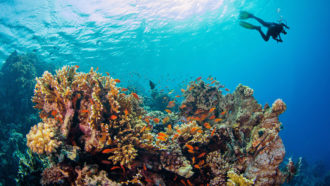 Ecosystems
EcosystemsLet’s learn about coral reefs
Coral reefs are home to many important species. But climate change is stressing corals to the max.
-
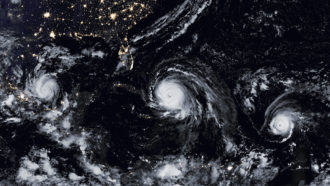 Environment
EnvironmentLet’s learn about hurricanes
Hurricanes are huge, terrifying storms that form over warm ocean waters — and waters are getting warming.
-
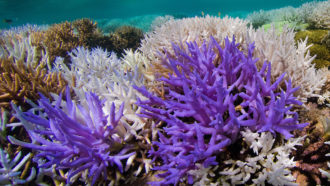 Oceans
OceansGoing bright may help corals recover from bleaching
When some corals bleach, they turn neon colors. Flashy hues may be part of a response that helps these corals recover and reunite with their algae.
-
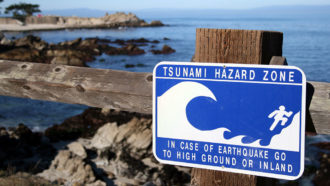 Oceans
OceansScientists Say: Tsunami
This is a series of ocean waves triggered by an underwater earthquake or volcano. The event starts as small waves, but those waves can grow as they approach land.
-
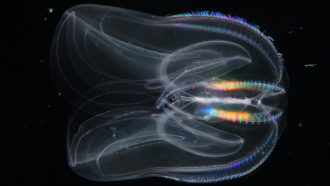 Animals
AnimalsWhen prey get scarce, these jellies become cannibals
Invasive comb jellies may feast on their larvae if massive population booms in summer deplete their prey.
-
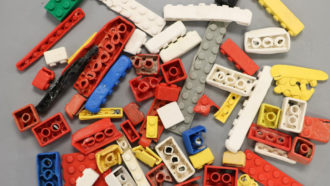 Environment
EnvironmentLegos could last a disturbingly long time in the ocean
By looking at toys washed up on beaches, scientists have estimated how long it takes hard plastics to break down in the oceans. And it’s a long time.
-
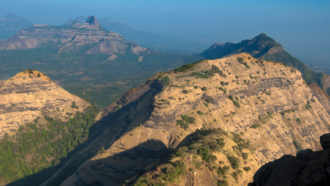 Earth
EarthStudy appears to rule out volcanic burps as causing dino die-offs
New data on when massive volcanic eruptions happened do not match when the dinosaur mass extinction took place.